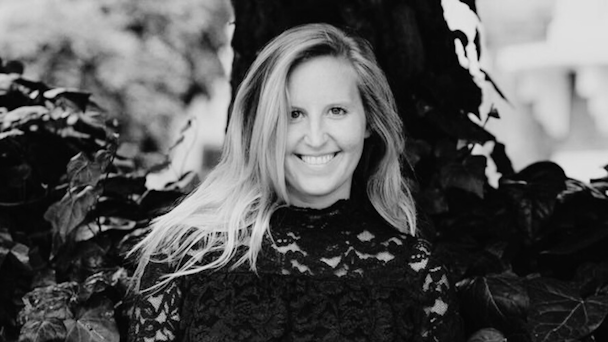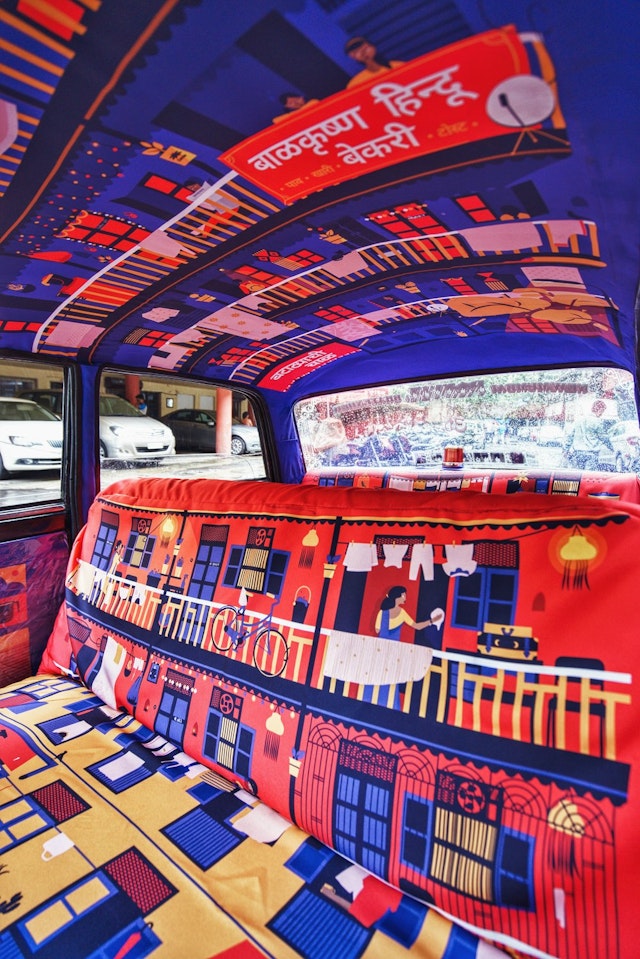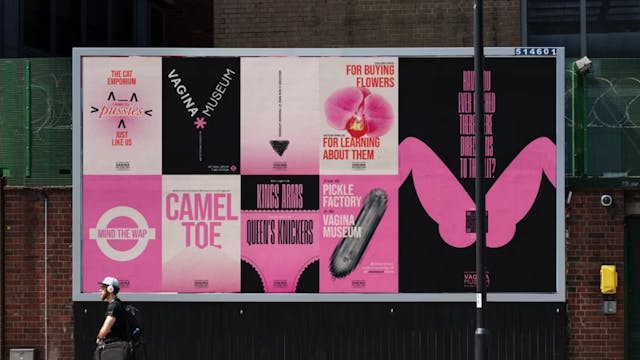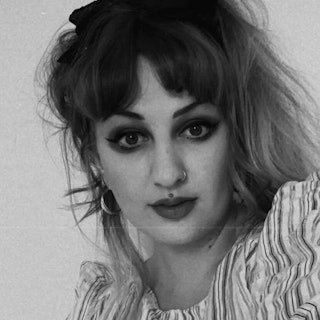My Creative Career: Nathalie Gordon, creative partner at Havas London
Continuing our series profiling some of the ad industry’s finest creatives, we catch up with Nathalie Gordon, who was last month named creative partner at Havas London, to talk celebs, heroes, the work that made her and what she really thinks of adland’s egos.

Nathalie Gordon on her life and career so far
Born in Johannesburg with a Danish passport, Nathalie Gordon grew up in London, her parents being eager for her to be educated in the UK. That education initially proved a disappointment, however, with teachers labeling the young pupil “really stupid” and advising that she be sent to a “special school” (it has since been recognized that Gordon is on the autism spectrum).
Her parents decided instead to pull her out of that school and apply for an art and drama scholarship at a more suitable boarding school. “That’s why I then sound like this,“ she laughs about her rather refined English accent. “I was mostly surrounded by very posh, very wealthy people, which we were not, but that was what I grew up with.”
That art and drama scholarship was followed by a foundation course at Wimbledon School of Art and lofty dreams of becoming an artist, and when a Fleet Street gallery owner came across her work on MySpace, she began exhibiting her paintings, aged just 18.
Already an exhibiting artist and not gelling well with her tutors, she decided to take a year out to go traveling. On returning to the UK, she then won a place on the English course at Oxford Brookes University and, to pay her way, took up working in the events space: “This was during peak lad culture and I started as one of those girls that wear too tight clothes and holds champagne at the entrance of parties. But then I was very much like, ‘Wait, hold on, I don’t want to be objectified. I would rather be planning the parties.’”
Throughout university, she continued to work her way up the events ladder and eventually got a job at a celebrity concierge company called Quintessentially. Working out of its Soho office, she one day received a diary invite for a meeting with ‘Kate.’ “I was 22. I got my folder, my little clipboard and my pen and I just went into one of the rooms and there was Kate Winslet and I was like, ‘Fuck, OK, Kate is Kate Winslet.’”
She explains that despite moments like this becoming quite normal, the pay was abysmal and her life had become nocturnal. When her parents quizzed her on what the five-year plan looked like, she says the pressure caused her to have an “existential crisis at 22.”
Advertisement
A bespoke service recommended by a family friend helped get her on a new career path. Over a few weeks, a panel of interesting and established people interviewed her before deliberating what career path would be a winner and one of their questions was whether she had ever wondered who made ads. “Back in those days, it was even harder to find out what the hell was going on than it is now, but I watched a bunch of ads and was a bit like, ‘Yeah, I guess that’s kind of fun.’”
So she was advised to go to the Watford Advertising Course, “the Harvard of Advertising,” the website of which she says had only one page and posed portfolio test questions: “They were like, ‘I love my cat, make me want to eat it,’ ‘Why should you never underestimate a handsome bear?’ and ‘Create a campaign to make Cliff Richard prime minister.’”
“[Tony Cullingham, the founder of the legendary course] didn’t want to tell people what to do, he just wanted to open up people’s brains, take a look inside and then go, ‘I can work with that.’”
The in-person interview process is one that Gordon will never forget, she says, Cullingham setting them a brief to sell milk and then, once all their pitches were laid on a table, he told them all to “fuck off and come back in an hour” and that if there was a tick on their submission, they had gained a place on the course. Gordon cleared this first hurdle and quit her events job the next day, to the dismay of her confused employer.
Advertisement
For a year, she honed her craft under the watchful eye of Cullingham, who passed away last year at the age of 66, and recalls how he would say that everything is a test and that there was no experience, good or bad, you couldn’t learn from. Briefs, people, colleagues, even annoying emails… each was a lesson.
“The appetite that Tony had, and that he taught all of us to have, was to essentially harness and galvanize. It’s something I’ll never ever forget.”
Although Gordon takes comfort that everyone who went to Watford had a similar experience, much of it was designed to get them to process information and restructure emotional intelligence in different ways. Cullingham was also well known for his “mind games” and pitting classmates against each other to get the best out of them. “Tony essentially tortured us for a year but the second you left, it was the second that you met the real Tony. And the real Tony was somebody who has never said ‘no’ to anybody and who would give his last pound to help somebody be better as a person or at work.”
She left college with a creative partner, who was also her boyfriend at the time (something she doesn’t recommend), and a placement at an agency that no longer exists. “It was fucking wild. It was kind of everything I had imagined it would be. There was a little bit of Mad Men peppered in there, like the Mad Men that you don’t see any more because we’ve all grown up and learned from our mistakes. But yeah, it was super fun. I mean, I think one of the first briefs I ever worked on was for World Toilet Day.”
She remembers thinking, “How is this a job, this is mental,“ and remained in placements for two years, including a nine month stint at Saatchi & Saatchi. During that time she and her partner were abruptly told that the next day was to be their last at the London shop. (Gordon says she is grateful that the industry is a bit more protective of juniors these days and that it was “a bit like the wild west“ back then.)
That day, both the personal and professional relationship with her partner ended. Gordon ended up getting a more permanent position at M&C Saatchi and found a new creative partner, which didn't work out in the end as he had dreams of becoming a photographer. Since then, she has always worked at a single creative, something she says has a lot of stigma attached to it.
Suggested newsletters for you
“My ECD then was Elspeth Lynn and she taught me everything I know about writing, so I just clung on to her like a leech. She’s an incredibly strong, independent woman and I was a little lost at sea because, as far as I was aware, creatives never worked alone. There was this real mentality then, like there is now, that if you’re a single creative it’s because you can’t work with other people, which just is not the case.”
Lynn herself was a one-woman band and Gordon took the opportunity to learn absolutely everything from her. At the time, Lynn and Paul Hogarth were working on House of Peroni.
“Elspeth ripped up everything I knew about writing and being a copywriter and made me relearn it. And she instilled in me loads of good discipline when it comes to writing because writing for House of Peroni was unlike anything else I’d done before. I probably haven’t done very much like it since.”
Gordon feels the industry has a dated view on single creatives, only accepting them when it seems like it has been earned much later on in their careers – although even to this day, people ask if she will ever get a partner. “It’s also a very sexist mindset, this idea that a woman working without a partner is so incredibly alien and foreign.”
Over her career, Gordon has worked at and freelanced for some of the biggest agencies in the industry, including BBC Creative, Uncommon, The Or and Above+Beyond, but says it hasn’t always been a smooth ride. “I remember being at a point in my career that I think a lot of creators get to, where it was all a bit dark. I had been made redundant – aka fired – twice in like three years and I was getting a lot of feedback that I just didn’t like fit into agencies.”
This low was the only time in her career she ever considered getting a creative partner, meeting with art director Sanket Avlani at a dingy Starbucks in Soho for a chat. While they decided not to work together, they said they would stay in touch and a month later he called with an off-the-wall idea.
Having discovered that the fabric used on the seats of the London Underground was designed to detract people’s eyes from the dirt, he then thought how, in his hometown of Mumbai, all of the taxi seats looked the same and were filthy. Bringing these two bits of information together birthed Taxi Fabric.

They shot a film, made a Kickstarter to raise funds (which they met within eight days) and then partnered with drivers and local artists on the project. It took off quickly, with Google even contacting the duo to work on a collaboration, and then Black Dog Films got in touch.
Famed for its music videos for huge celebrities, the production company wanted to use one of the taxis in a shoot. “They sent us one page of a creative deck and it had the word ‘Chris.’ I remember calling Sangkat and saying that it was Chris Martin, definitely Chris Martin.”
It turned out Coldplay were filming the video for their song featuring Beyoncé, Hymn for the Weekend. “Beyoncé and Chris Martin rode around in one of our cabs, which was designed by someone called Samya Arif, who, off the back of this, had a piece written about her in the New York Times. It just kind of went on and on and on from there.”
For Gordon, this project reframed what you could do with creativity. She says that the work she loves the most has been born out of frustrations, The Vagina Museum project being an example of that. During the pandemic, when all indoor venues were closed, the government issued grants to help keep arts and culture spaces afloat, but newer spaces didn’t qualify. “They were basically just gonna die on their arses, terrible phrase! But yeah, they were going to close.”
With people by then being allowed to walk outside, Gordon suggested they make a poster campaign to raise awareness and hold an art auction to raise funds, with dozens of artists agreeing to create bespoke pieces that could be bought.

The project was run by a team of three, who begged and scraped their way through it with the help of generous media partners, and left Gordon swearing she would never run an art auction ever again. “I mean, 65 pieces of art and they were all coming to my house and then I had to send them out again. We were also doing the auction via email, so I’d be at work and I’d get like 300 emails about one piece of art, incremental one-pound values going up. It was complete madness.”
It was worth it, though, and Gordon is grateful for the process. They raised around £18,000, which kept the museum open, and they got to do some cool work. And, she says, they were an amazing group of people who are driven by love and inclusivity and everything that offers to communities.
In her very straight-talking manner, Gordon says what she loves about the industry is getting to “dick around” all day while also making work that might bring a bit of sparkle to someone’s day. “I know we literally just sell toilet paper, but now and again something breaks through that’s clever, funny or insightful.”
“Another thing Tony said was that you just need to make one good thing a year. I don’t think I understood fully what he meant by that, but I do now.” Sometimes, that “one good thing” could be a clever poster or a social media take that goes viral; joy and personal achievement can come from smaller things.
It is Gordon’s opinion that the ad industry is too “snobbish,” that no one is humble enough and too many people have their “heads up their own arses“ – and that viewing the Super Bowl or Christmas as the pinochle of advertising is unobtainable as very few people get to make that type of work.
For anyone coming into the advertising industry today, she advises having a thick skin and realistic expectations, but her biggest piece of advice is simply, “Don’t be a dick.“
“It’s important for everybody to learn that from the first day they step foot into this industry because it’s really easy to have an ego in this industry – in fact, that’s often celebrated – and I really don’t think is good.”

